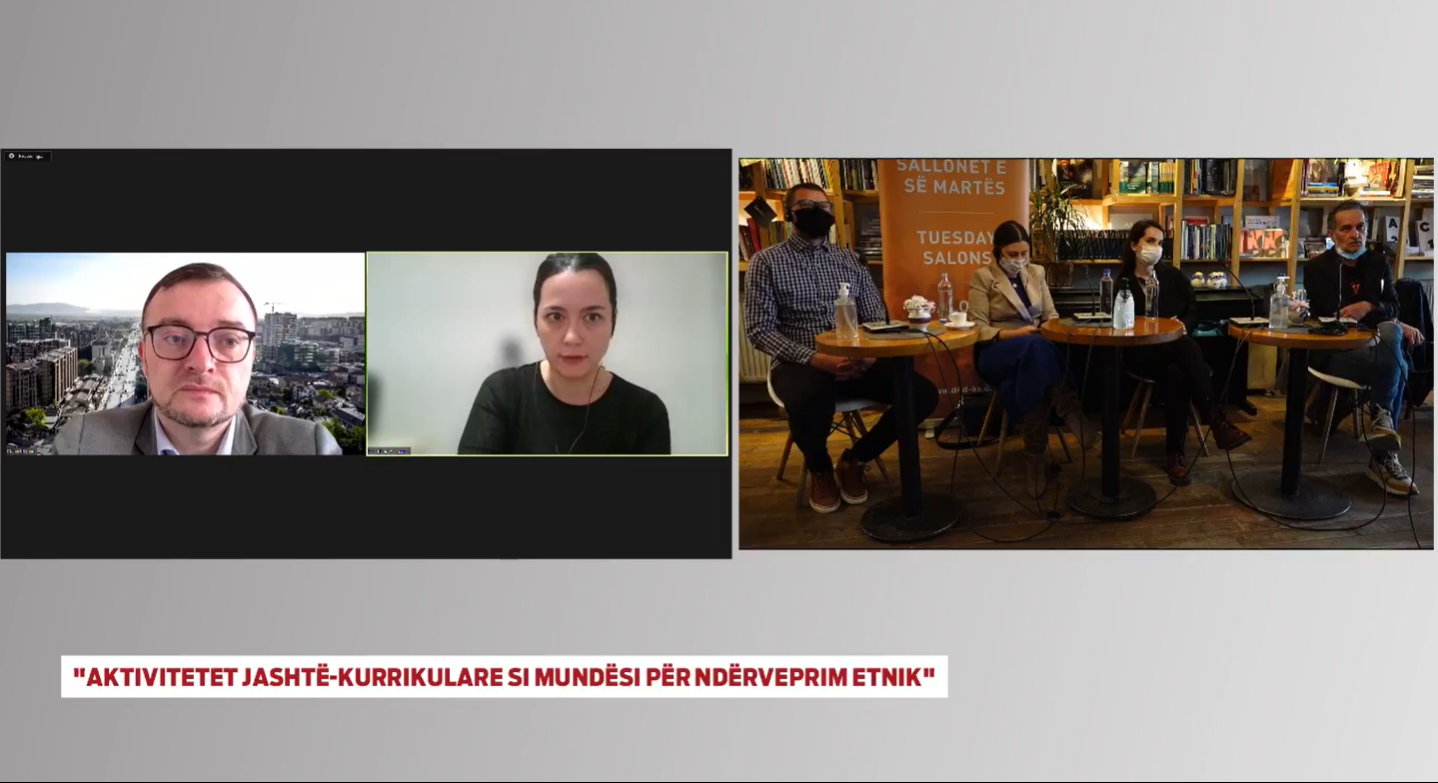The question of why there is a need for extracurricular activities for ethnic interaction may seem rhetorical at first glance. Still, this topic is necessary to eliminate barriers between ethnic communities in Kosovo, create more favorable conditions for interethnic cooperation, and create conditions for a more stable society. Over 13 years since the declaration of Kosovo’s independence, the lack of interaction remains one of the significant challenges for the integration and coexistence of ethnic communities in Kosovo, emphasizing the interaction between the Albanian and Serb communities. Although in many municipalities, communities are geographically close to each other, opportunities for interaction remain limited.
In addition to the historical narrative and political discourse we constantly face, one of the leading causes preventing interaction between the two ethnic communities is the existence of two parallel education systems in Kosovo. To be more specific, while the youth of the Albanian community attend classes in Albanian based on the curriculum of the Kosovo Ministry of Education, Science, Technology and Innovation, the youth of the Serb community attend classes in the Serbian language based on the curriculum of the Ministry of Education, Science and Technological Development of the Republic of Serbia.
Given that the education systems in general, and textbooks in particular, promote one-sided and exclusive narratives, it is not difficult to understand that anti-values find a space for promotion among the younger generations, who, although have no real memories of the war in Kosovo, can be shaped by these narratives and risk carrying those prejudices within themselves further reinforcing distrust and hatred with each other. This whole vicious circle is further supported by the media, which often promotes discriminatory language.
Due to the political complexity in Kosovo and Serbia, a radical shift towards inclusive education seems more like “wishful thinking” than a reality in the near future. However, this space with all the accompanying challenges has been covered by community-based civil society organizations for 20 years now. According to the panelists in the salon, these organizations place the individual at the center to identify young men and women who can serve as champions of the values they promote.
Non-formal education or extracurricular activities, which have a clear objective and follow-up activities, have the advantage of flexibility over formal education, which takes a long time and, above all, the political will to transform. Although the role of formal education is incomparable, various field and post-conflict research show that non-formal education can have a positive impact on providing an open platform for debate and social inclusion as well as building trust between communities. However, a problem raised by the panelists of the two communities in Kosovo and Serbia remains the major political issues, incidents, and nationalist discourse of political elites, which in addition to fueling tension, often undermine the relative progress of civil society.
Another critical factor that contributes to the current situation is the language barrier between the two communities. In almost all cases, young people do not speak each other’s language but communicate in English instead. However, not everyone speaks English, and this makes inter-ethnic communication more difficult. So in cases where young people want to participate in extracurricular activities, the organizers must also consider the cost of translation and the fact that information is lost in interpretation.
Concerning this challenge, the contribution of civil society is undisputed. At their initiative, various platforms have been implemented which enable young people from ethnic communities to learn or communicate in each other’s language. In fact, civil society representatives from both communities point out that the progress made so far in this regard would be unthinkable without the role of civil society. Of course, this comes as a result of learning, and there is still a lot of work to be done.
An exciting recommendation stems from the argument that civil society organizations often deal with political topics that young people are reluctant to participate in due to NGOs’ use of formal language. Instead, it was proposed that the work of NGOs not be limited to traditional trainings, seminars, or conferences. Still, that cooperation must intensify with study visits, performances, joint exhibitions, the formation of various clubs, etc.
The main challenge for the future was the lack of efforts and systematic work of public institutions. The panelists also stressed that civil society should put pressure on the two countries’ governments for more transparency and accountability during the dialogue process, as this directly affects the citizens of both communities, not only.
Although it is quite difficult to quantify the progress of civil society through extracurricular activities, they remain the best and most realistic opportunity right now to move beyond politics, beyond the daily news, and the political and ethnic tension we experience every day. Undoubtedly, the work of civil society is many steps ahead of state bodies. However, radical changes towards sincere approximation between communities may not be imagined without political will and serious commitment from state institutions, which bear the primary responsibility.


